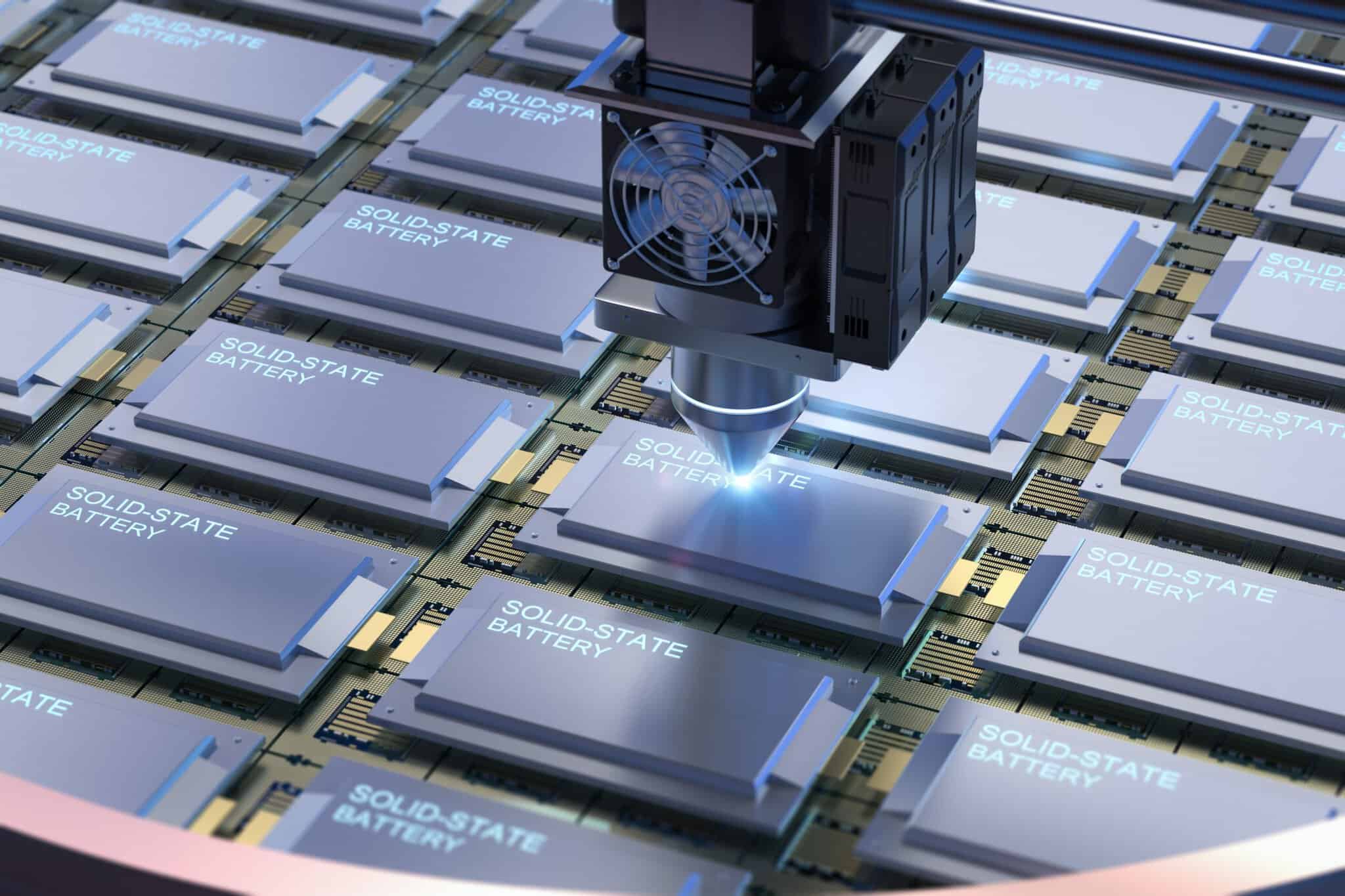Recent advancements in battery technology have sparked significant interest in the development of high-performance solid-state batteries (SSBs). Researchers and companies worldwide are striving to create batteries that offer greater energy density, improved safety, and longer lifespans, aiming to revolutionise portable electronics and electric vehicles (EVs). Solid-state batteries are viewed as a game changer, thanks to their potential to surpass the limitations inherent in traditional lithium-ion batteries.
SSBs utilise a solid electrolyte instead of a liquid one, which significantly enhances their performance. One of the most exciting breakthroughs in this field has been the development of solid-state batteries that feature high ionic conductivity, allowing for quicker charge and discharge times. A recent study published in Nature highlighted a new type of solid electrolyte that delivers ionic conductivity levels comparable to or even exceeding those of liquid electrolytes. This development opens the door for batteries that can be charged in a fraction of the time currently required.
Another remarkable advantage of solid-state batteries is their safety profile. Traditional lithium-ion batteries are prone to risks such as thermal runaway and leakage due to their liquid electrolytes. In contrast, SSBs are less flammable, and the solid electrolytes significantly mitigate the risks of overheating and combustion. This enhanced safety feature makes them particularly appealing for consumer electronics and electric vehicles, where safety is a paramount concern.
In addition to safety, SSBs offer greater energy density. This means that they can store more energy per unit volume or weight compared to their liquid counterparts. Recent innovations have led to SSB designs that potentially increase the energy capacity of batteries by up to 40%. Such improvements in energy density could enable electric vehicles to travel further on a single charge or allow smartphones and laptops to enjoy longer usage times without needing a power source.
The lifespan of solid-state batteries also surpasses conventional batteries, as they are less susceptible to dendrite formation—a common problem in lithium-ion batteries that can cause short circuits and reduce battery life. Research indicates that SSBs could effectively double the lifespan of batteries, which is especially beneficial for industries that rely on high-performance energy storage solutions.
As companies explore the commercial viability of solid-state technology, collaborations between academia and industry are proving essential. With leading companies and startups investing heavily in research and development, the industry is on the verge of a significant transformation. For instance, major automotive manufacturers are already partnering with battery researchers to integrate solid-state technology into their future EV models.
In conclusion, the ongoing research into high-performance solid-state batteries showcases the promise of a technological shift in energy storage. With their superior performance, safety features, and longer lifespans, solid-state batteries are lending themselves to an era where electric vehicles have extended ranges, and electronic devices maintain prolonged functionality. The race to market these innovative batteries is on, and as breakthroughs continue to emerge, they are poised to reshape the landscape of energy storage solutions in the near future.
Battery Breakthroughs: Tips, Life Hacks, and Facts
The evolution of battery technology, especially with the advent of solid-state batteries (SSBs), is not just for tech enthusiasts and industry experts; it has pertinent implications for everyday life as well. Here are some tips, life hacks, and interesting facts that can help you make the most out of your electronics and stay informed about this exciting technology.
1. Optimise Your Charging Habits
To get the most out of your current lithium-ion batteries until solid-state alternatives become mainstream, consider the following habits:
– Avoid deep discharges: Try not to let your devices drop below 20% battery life regularly. Keeping your battery between 20% and 80% can prolong its lifespan.
– Utilise fast charging with caution: While fast charging is convenient, using it consistently can generate excess heat, damaging your battery. If your device supports it, use regular charging when possible.
2. Explore the Benefits of SSBs for the Future
Once solid-state batteries hit the market, look for products that utilise this technology:
– Longer-lasting devices: Expect smartphones and other portable electronics to last significantly longer on a single charge.
– Safer EV options: For electric vehicle owners, the future may bring cars that not only charge quickly but also have enhanced safety features, reducing the risk of battery failure.
3. Stay Informed About Battery Recycling
As newer and more efficient batteries become available, old batteries can now be recycled effectively:
– Responsible disposal: Always dispose of your lithium-ion batteries at a designated recycling centre. Keep an eye out for local events focused on battery recycling, as improper disposal can harm the environment.
4. Use Battery Saving Modes
Most devices come equipped with battery-saving modes that can optimise performance:
– Activate power-saving features: When your battery is low or you know you won’t have access to a charger, activate the battery saver mode on your device to extend usage time.
5. Prepare for Your Next Purchase
When shopping for electronics, look ahead toward battery technology advancements:
– Research the latest tech: As more manufacturers announce adoption of solid-state technology, do your research to understand the benefits associated with each new model.
Interesting Fact: Solid vs. Liquid
Did you know that the shift from liquid to solid electrolytes in batteries could cut charging times down to minutes instead of hours? This means less time plugged in and more time using your devices!
Unlocking Collaborative Innovation
The future of solid-state batteries is also a result of collaboration between various sectors:
– Industry partnerships: As major companies and startups work together, watch for groundbreaking innovations that address issues of efficiency and safety in battery technology.
As advancements in solid-state battery technology develop, staying ahead of the curve with these tips can help you optimise your electronic device usage while preparing for a future where batteries could revolutionise how we interact with technology.
For more insights and updates on technological advancements, visit MIT Technology Review.







